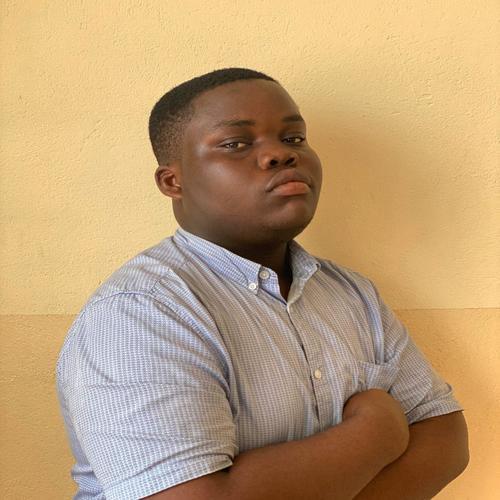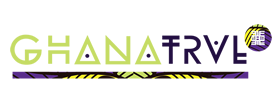Interesting facts about Ghana you didn’t know.
1
With the warmth and hospitality of Ghanaian people, beautiful nature, dynamic city life Ghana is quickly building its recognition on the global stage. It is developing and growing towards becoming the trendsetter in many ways. It is a nation brimming with style and immense potential. Despite facing challenges, Ghana continues to shine as one of Africa's gems. Here are a few interesting facts about Ghana history and culture that you might find interesting to know about this fascinating country.
2
The name Ghana means “Warrior King” referring to the kingdom of the Ghana Empire in West Africa. At the time it was in the western Sudan savannah region (modern southern Mauritania and Mali). The Sahara desert surrounded it from the north and rainforests from the south. It also had easy access to Senegal and Niger rivers. Major trade for the empire was of iron, gold, copper and ivory.
3
Name of the capital “Accra ” from the Akan word ‘Nkran’ means “ants.” The name refers to soldier ants that once surrounded the city. The name of Accra in the Ga Language is Ga or Gaga which. It also refers to ‘Nkran’.
4
Accra has become the Second most expensive City in Africa, ranking ahead of Nigeria and Johannesburg.
5
Some citizens of Ghana honour the deceased with so-called ‘fantasy coffins’. They make coffins in the most various shapes, coffee beans, cars, animals etc. Creatively built coffins represent what the deceased loved or was associated with during his/her life.
6
A widow wears black adinkra cloth for one year after the passing of her husband.
7
Ghanaians refer to Lake Bosumtwi as a sacred place. It does not have outlets or inlets and depends entirely on rainfalls.
8
Ghanaians give names based on the day of birth.
9
Ghana gained independence from Britain in 1957. It was the first of the sub-Saharan colonies to break free from colonial rule.
10
Wli Waterfall is not only the highest in Ghana but also in West Africa.
11
Football in Ghana (or soccer) is the most popular sport in the country.
12
Freedom of worship and religion are protected by the constitution of Ghana. School teaching programs include religion tolerance as part of the program.
13
Ghanaians speak over 40 languages across the country. English is the official language among the African languages.
14
Ghana is the 2nd largest producer of cocoa beans in the world, following Ivory Coast, which is the 1st.
15
Lake Volta is the largest manmade lake in the world - covering 3.6% of the country’s total area.
16
Elmina Castle is the oldest European-made building in sub-Saharan Africa.
17
North and South of Ghana have different seasons. The Rainy season in the north runs from April to October. In the south the rainy season hits twice - from April - June and then once again September - October.
18
Ghana is Africa’s second largest producer of gold.
19
Farmers living nearby Shai Hills sometimes spray chickens bright neon pink to deter the baboons, living wild in the area, from stealing them.
20
Ghana successfully launched its first satellite GhanaSat-1 in 2017.
21
Akan people practise a matriarchal system of heritage. Men still hold the major positions of power in society. For example, if a king and his sister inherit the royal status from their mother, the king will take the throne, however, later the throne will be inherited by his sister’s son, not his son.
22
In fishing communities funerals are usually organised on Tuesdays, especially if the person was a fisherman himself. According to Ghanaian Fishing traditions, Tuesdays are sacred days when fishermen are prohibited from fishing by the sea god.
23
The Ghanaian currency - the cedi - comes from a local word meaning a cowry shell. Cowry shells (from sea snails) once were used as money in Ghana.
24
Ghana can be proud of six national parks, 23 nature reserves, wildlife sanctuaries and protected areas across the country. Just to give you a small insight into Ghana’s wildlife, there are over 650 butterfly species in the Kakum National Park alone. The wildlife variety is mind-blowing - elephants, hippos, crocodiles, hyenas, antelopes, monkeys, marine turtles, butterflies and not to forget over 700 identified bird species.
25
In Ghana, the national government co-exists with an additional system of tribal government.
26
The largest open-air single market in West Africa is in Ghana. Kejetia Market in Kumasi hosts around 10 000 stores and has become a tourist attraction. You will find anything you can think of there - from local crafts to fruits, meats and anything you can imagine. It covers around 172, 197 square metres.
27
The legendary Pan African leader Marcus Garvey and Universal Negro Improvement Association and African Communities League inspired the black star in Ghana’s flag.
28
In the Global Peace Index (GPI) report in 2022, Ghana was recognized as the second most peaceful country in sub-Saharan Africa. The report showed an improvement in Ghana's score, rising from 1.715 in 2021 to 1.760. This score reflects various factors, including national security and the level of terrorism. Globally, out of 163 countries assessed, Ghana was ranked as the 40th most peaceful nation.
29
Ghana is where Azonto or “Apaa” originated from. The dance took over the internet and the world for quite some time. The dance originated from Ga traditional dance ("Kpanlogo").
30
The first Ghanaian paintings ever launched into space was the world-renowned artist’s Amoako Boafo’s portraits. The paintings were painted directly onto pieces of a Blue Origin rocket using special ‘space grade’ paints. The launch of the “Suborbital Triptych” (2021) was part of a collaboration project between the Jeff Bezos-owned aerospace company Blue Origin and the aerospace technology company Uplift AeroSpace.

Hi, I’m Desmond, I am a GhanaTRVL Insider.

















Comments